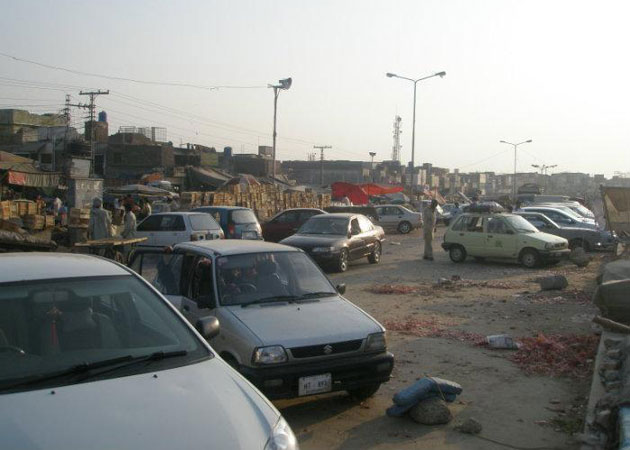 The improper disposal of waste at the I-11 Sabzi Mandi, Islamabad’s major fruit and vegetable market, has become a grave public health hazard.
The improper disposal of waste at the I-11 Sabzi Mandi, Islamabad’s major fruit and vegetable market, has become a grave public health hazard.
Piles of rotting fruits and vegetables, scattered across the vicinity near the main road, emit a foul odour and inconvenience to nearby residents, passersby, businesses, and commuters. Despite repeated complaints from citizens, no substantial action has been taken to address the issue, raising questions about accountability and governance.
The Sabzi Mandi, a hub for the city’s fruit and vegetable trade, has turned into a dumping ground for unsold perishable goods. Traders discard spoiled produce, creating mounds of decaying organic waste.
The lack of a waste management system in the area exacerbates the problem.
Raza Ranjha, a motorcyclist, told APP, “Every time I pass through this area, I feel like holding my breath. The smell is so bad that it ruins the whole experience of commuting on this route.” Sadia Babar, a college student, says, “I travel by public transport, and whenever the bus stops near Sabzi Mandi, the stench is overwhelming. It’s embarrassing when people start covering their noses—it feels like something straight out of a horror story.”
Mohsin Bilal, a ride-hailing service drive, remarked, “This stretch of road near the Mandi is infamous for its bad smell and unhygienic conditions. Passengers often ask me to take a longer route just to avoid it.”
Samiullah, a delivery rider commented when he pass through the area several times a day, and it’s the worst part of his job. The smell sticks to your clothes and makes the whole ride unpleasant.”
Sheikh Ansar, a shopper heading to the market expressing his resentment said “I used to buy fruits and vegetables from this market regularly, but now I avoid it. The waste problem has made the entire area unsanitary, and I’d rather go somewhere cleaner.”
The Sabzi Mandi is managed by the Market Committee, which has faced criticism for its indifference to the issue.
Secretary Market Committee Muhammad Saqib refused to comment when approached by APP, further highlighting the lack of accountability.
Vendors at the market claim that the committee has failed to educate shopkeepers about proper waste management practices or offer incentives to reduce waste. The Capital Development Authority (CDA) Sanitation Directorate, tasked with ensuring proper waste disposal in the city, has also been unresponsive. Multiple attempts to reach CDA officials by this news wire for comment went unanswered.
Health experts have raised alarms about the environmental and health risks posed by waste mismanagement.
Dr Maria Khan, an environmental specialist, warned that improper disposal of organic waste releases methane, a potent greenhouse gas contributing to air pollution and climate change. “Leachate from the decomposing waste can seep into the groundwater, contaminating it and posing severe health risks to the community,” she explained.
Dr Mubashar, a public health expert, elaborated on the medical dangers, noting that exposure to decomposing organic waste can cause respiratory issues, skin allergies, and vector-borne diseases. “The unhygienic conditions provide a breeding ground for pests and rodents, which can spread diseases like dengue and typhoid,” he said.
The impact of the waste mismanagement extends beyond the market. A multinational cash-and-carry store located adjacent to the dumping site has reported declining footfall due to the unpleasant smell and unsanitary environment.
“Customers are reluctant to visit because of the stench,” said a store employee, on condition of anonymity, highlighting the economic repercussions of the issue.
He said the lack of a clear timeline for resolving the issue has left citizens disheartened.
Despite repeated complaints, he said neither the Market Committee nor the CDA has announced any concrete plans to address the mounting waste.
Experts and residents alike are urging authorities to adopt sustainable waste management practices.
Ensuring traders separate organic and non-organic waste, introducing composting facilities to process decayed produce into usable fertiliser and implementing stricter regulations for shopkeepers to manage unsold goods effectively.
They also called for educating vendors and customers on waste management and its environmental impact. Immediate action by the Sanitation Directorate to clear the existing waste and enforce regular clean-ups. If immediate action is not taken, the escalating waste problem at I-11 Sabzi Mandi will continue to harm public health, degrade the environment, and tarnish the image of the federal capital.
Citizens and experts are calling on the CDA and Market Committee to step up, fulfil their responsibilities, and ensure a clean, safe, and sustainable environment for all.